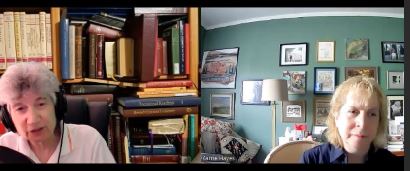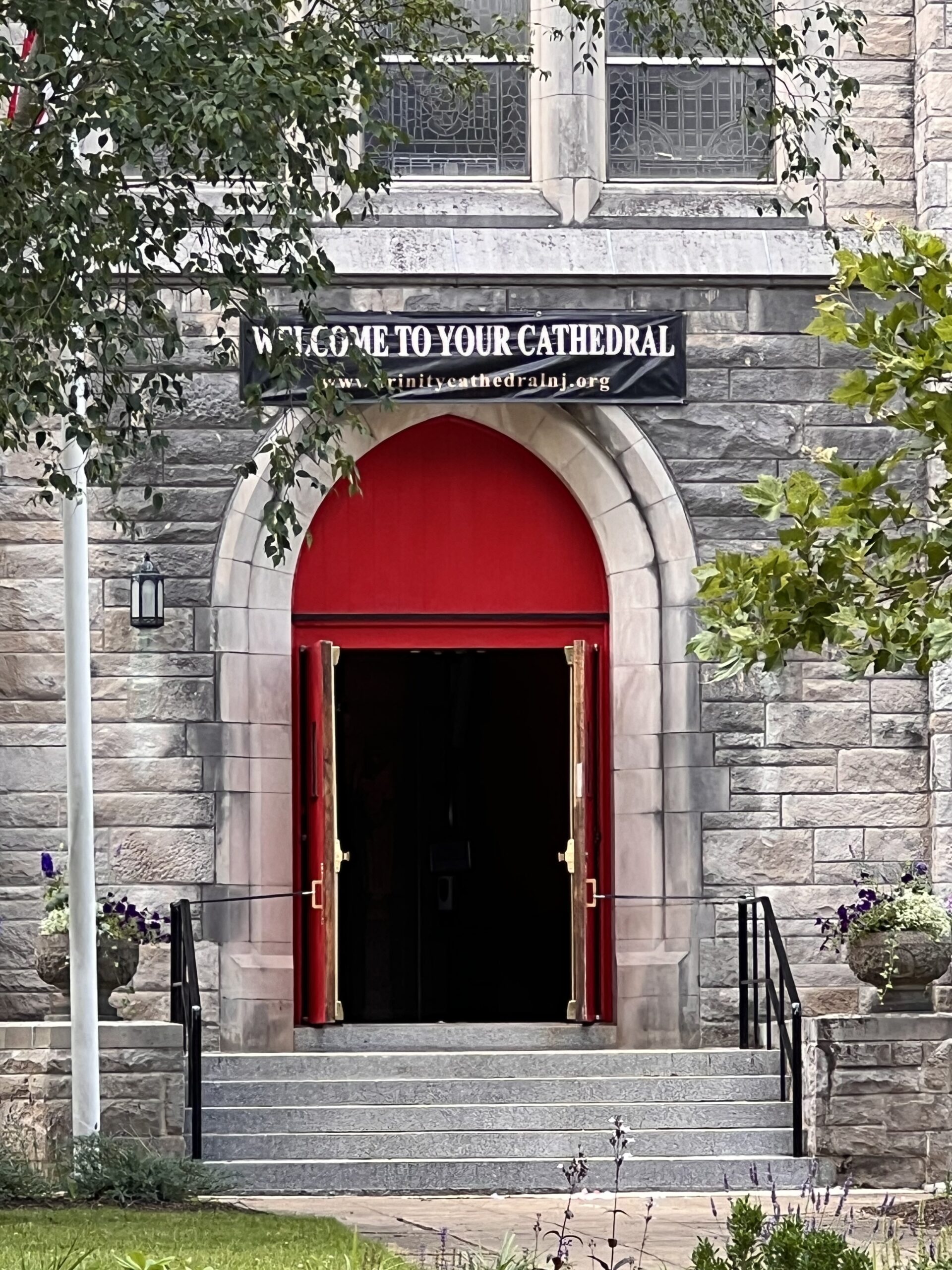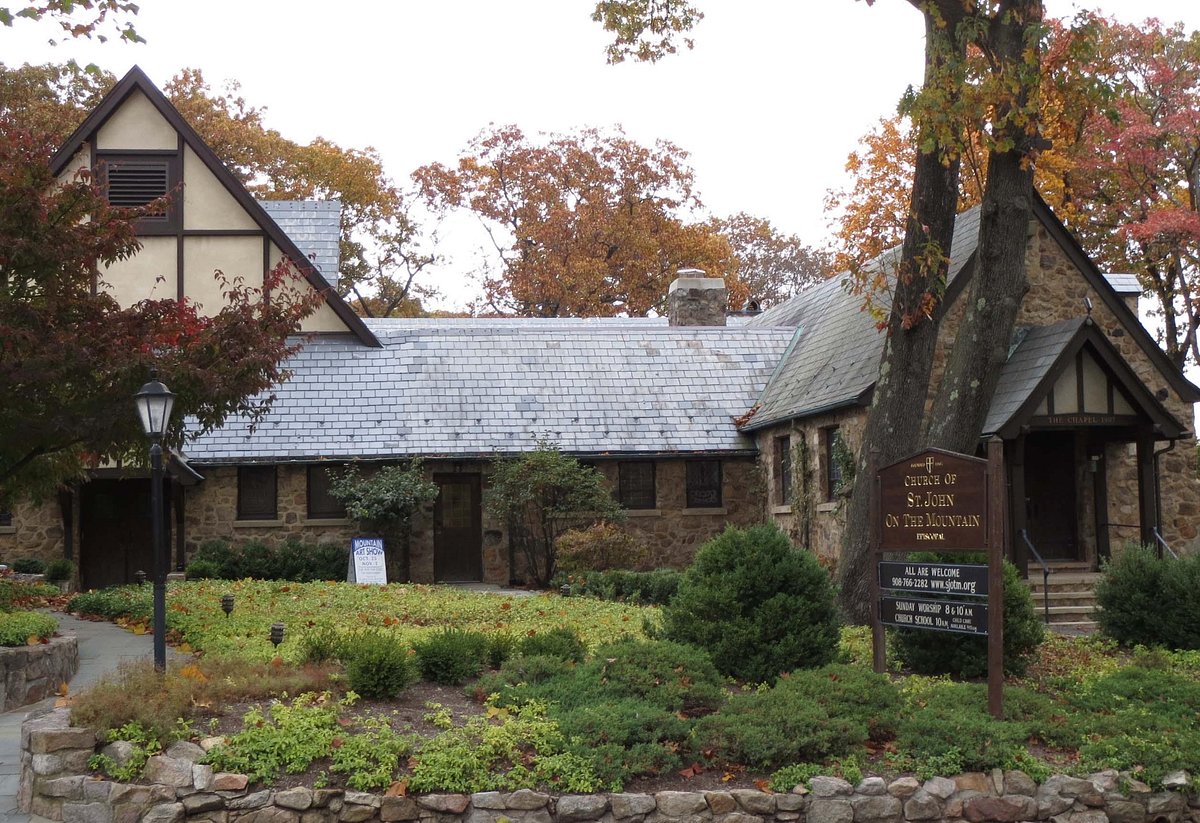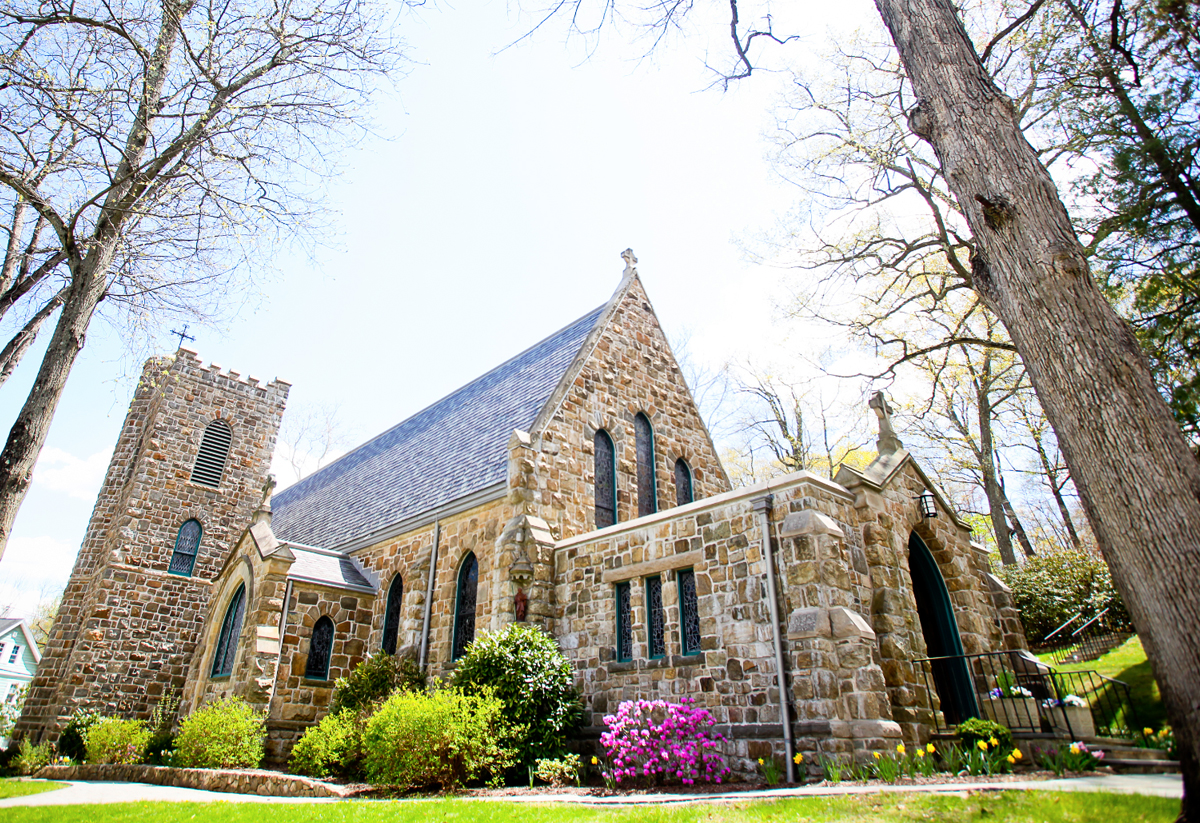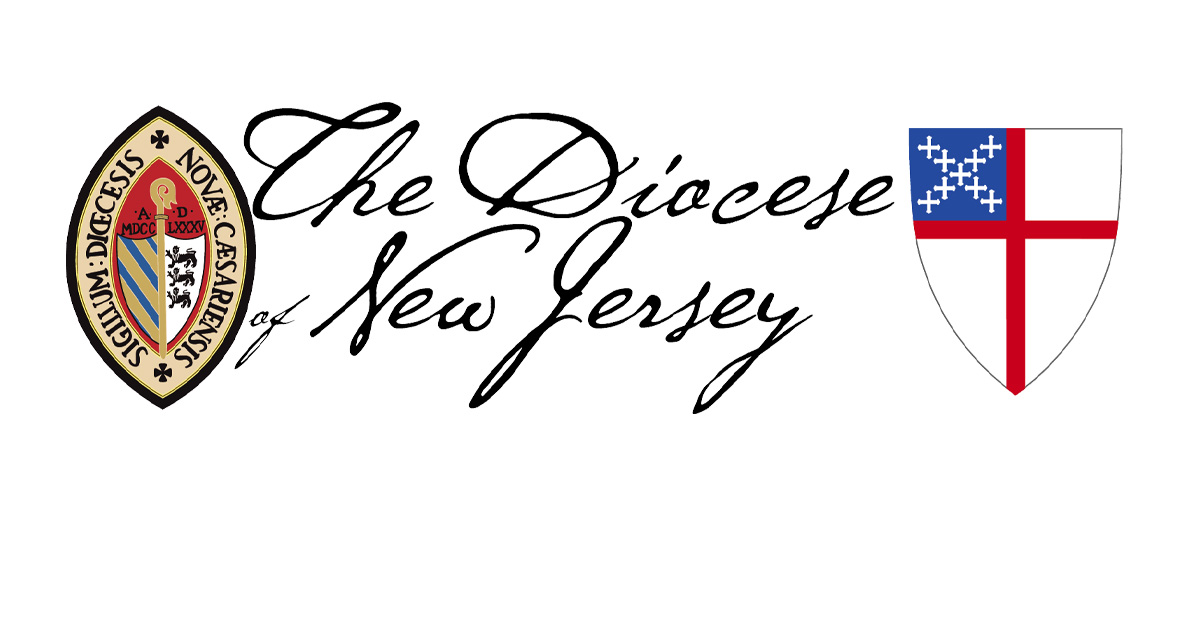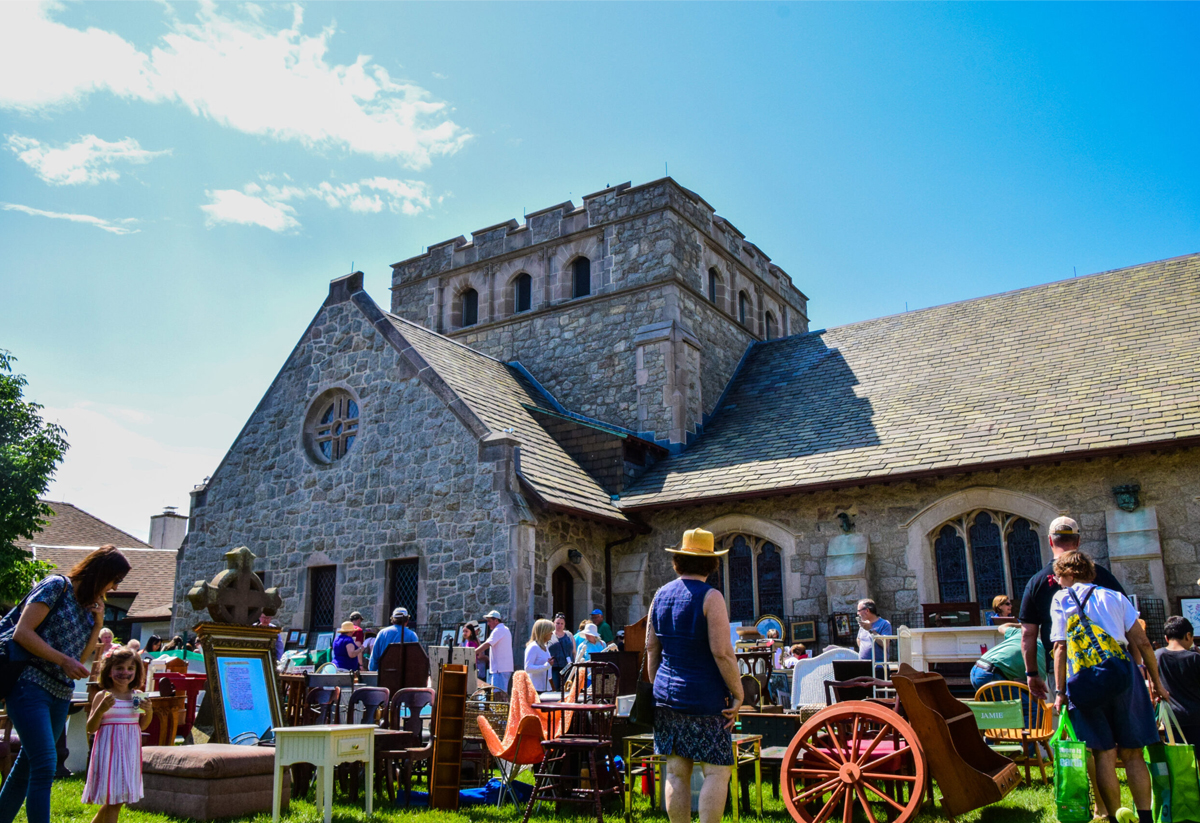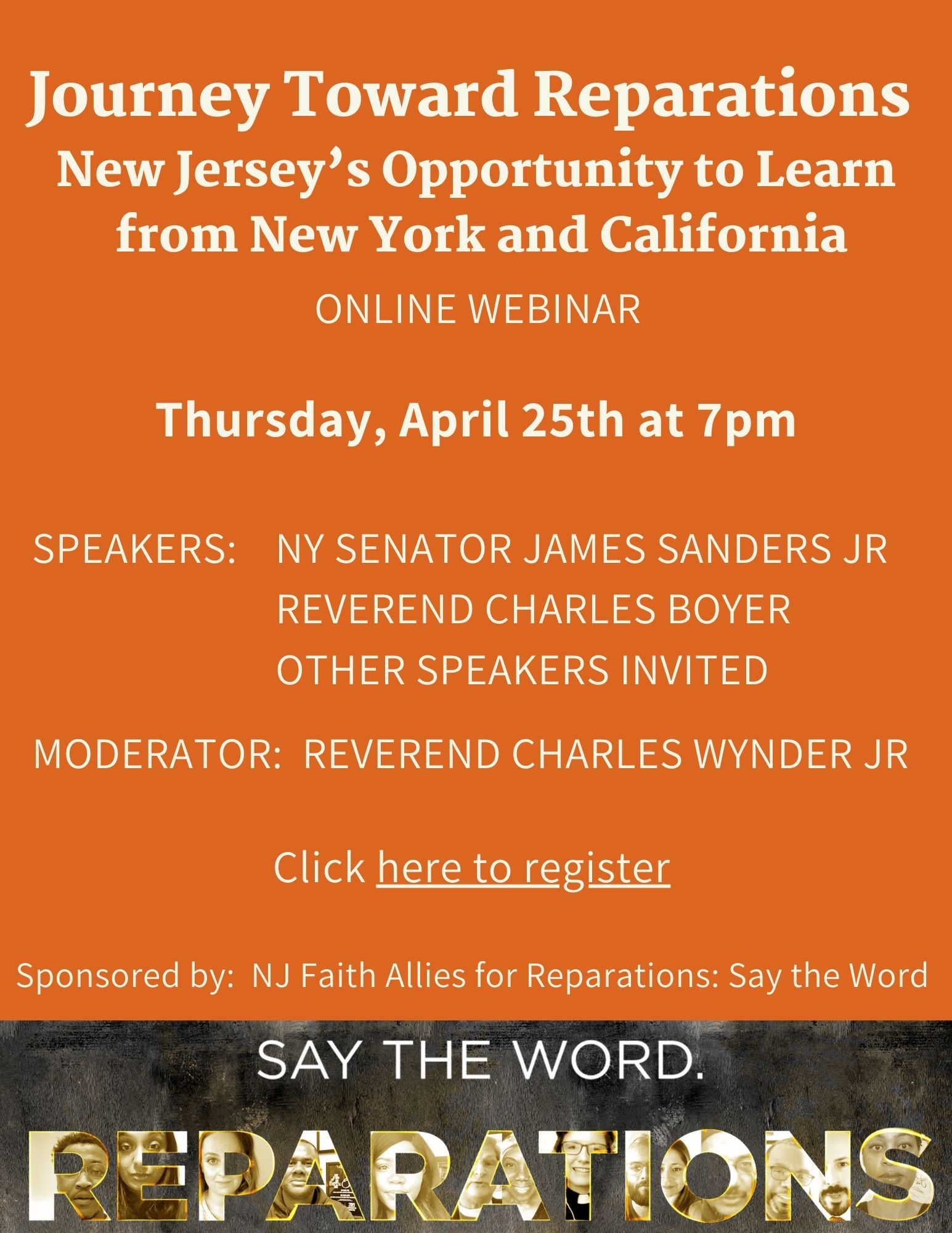Last week, I had the enormous pleasure of meeting the Rev. Joanne Izzo, who is The interim Canon to the Ordinary for the Diocese of New Jersey.

If you’re at all like me, I bet you’re wondering what on earth that actually means. And no, by “Ordinary,” I don’t mean the average Joe or Josephine. When I ask what an Ordinary is exactly, Joanne’s answer is succinct. “The Ordinary in this case is Chip Stokes, the diocesan bishop. It’s just a term used for one who is responsible, as he is, for the diocese. The Canon to the Ordinary is a trouble shooter, a problem solver, a communicator. My task is to go where the Bishop sends me, and to be available when he is not. I am here to listen and to serve God, the bishop, and the diocese. When I’m in the room representing him (with either a clergy or a congregation), it’s a way of knowing that he is, in fact, present.”
For those of us in the Anti-Racism Commission, Joanne’s addition to the team is very exciting indeed. Our chat was wide ranging and touched upon everything from the pandemic to systemic racism and how to broach the idea of becoming anti-racist for those who feel that anti-racism is just not for them.
Here’s an excerpt from some of our conversation. Joanne described how Covid has shown us where we are strong and where we are weak. She said, “It has brought up so many things which have gotten pushed down. We can ask from a spiritual perspective, ‘where is God in this? What is God trying to tell us?’ We know God is here in this, by just starting to listen to what God wants us to do, in us, through us, at this time. It’s challenging us to ask that question, to look for God, to, to be mindful and for us to say, ‘What is it we are being called to do? How are we being called to step into this?’ As Christians, as people of faith. As disciples, how are we being called to step into the situation and to accept, when we see where we are weaker, where we are broken, that we’ve allowed that to happen?” She continued, “We have two choices, we can say that we’re just going to sweep it under the rug, and move on, or we can say that, yeah, it’s time for us to hold ourselves accountable and to make some changes in how we do things.”
I asked her what she would say to folks who look like us (we’re both White) and who believe that the current situation and its history has nothing to do with them. Because there are quite a few White people whose position is, “I didn’t create this problem. I work really hard and I try to be a good person. I go out and I mind my own business. My family didn’t have slaves. Nobody was helping my ancestors when they stepped off the boat.”
How does one address those who look like us, and who may not have a spoken resistance like that, but who have an instinctive resistance to what is anti-racism?
 Joanne thought for a moment and replied, “It’s an excellent question. We didn’t cause the problem. But by our ignorance in not understanding our history, we participate in continuing the problem, because it’s not resolved. It’s not a matter or not of whether we owned slaves. It’s a matter of what we are going through; it’s a matter of understanding how we continue to participate in the problem, in ways that we don’t notice. Because we don’t know our history. White people don’t know our history. There’s another layer in there: Because we take so much for granted, we are unconscious, and just assume that this is just the way it is.”
Joanne thought for a moment and replied, “It’s an excellent question. We didn’t cause the problem. But by our ignorance in not understanding our history, we participate in continuing the problem, because it’s not resolved. It’s not a matter or not of whether we owned slaves. It’s a matter of what we are going through; it’s a matter of understanding how we continue to participate in the problem, in ways that we don’t notice. Because we don’t know our history. White people don’t know our history. There’s another layer in there: Because we take so much for granted, we are unconscious, and just assume that this is just the way it is.”
It’s a lot to unpack. We were both quiet for a moment.
Then she continued, “But, it doesn’t have to be that way. A woman named Barbara, whom I worked with a few years ago, she was a nurse, and we’re friends. Barbara told me about when she was in high school, she was on track. Barbara was a runner and she was fast. There was a day when scouts were coming for the Olympics, and the school would not permit her to run. She was told, “You are a black girl, and you’re not going to be allowed to run.” And you hear it. You hear the rage, and under that, the grief, and the powerlessness. You have to look around you, and see where that might still be happening now. It’s subtle, but it is still happening.”
So, what should a person expect to take away from anti-racism training?
Joanne said, “I would hope that people come to the training with a heart and a mind and a spirit that is open to the Holy Spirit to allow God to transform. This is Romans 12, “Do not be conformed to the world but be transformed by the renewal of your mind.” For me, it’s recognizing that where unconsciously you may have conformed to the world, you will allow the Holy Spirit to show you another way, that you may be transformed.”
This summer’s Anti-Racism training begins July 29. To learn more, click here.


